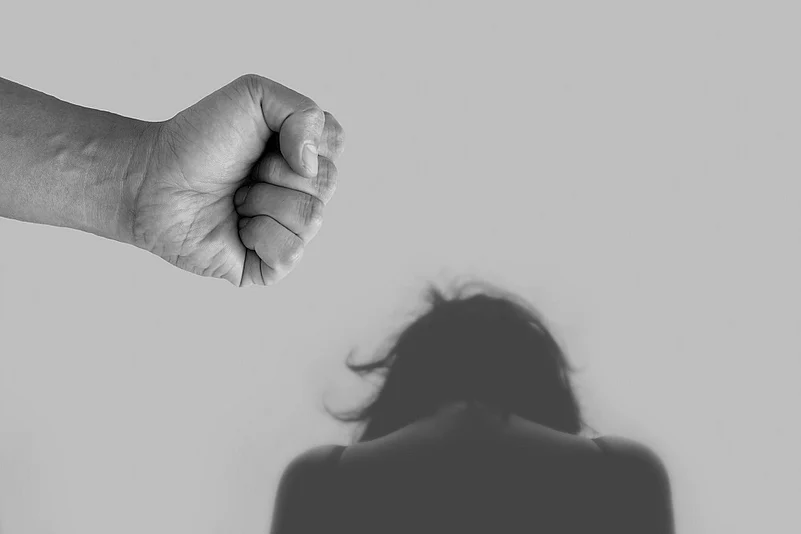Over 30 per cent women suffered physical and sexual violence by their spouses in five out of 22 surveyed states and Union territories in the country, according to the National Family Health Survey-5, with activists and NGOs fearing its further rise in view of Covid-19 pandemic.
The five states are Karnataka, Assam, Mizoram, Telangana and Bihar.
The survey was conducted in 6.1 lakh sample households, involving household-level interviews, to collect information on population, health, family planning and nutrition-related indicators.
About 44.4 per cent women aged 18-49 years experienced domestic violence by their spouses in Karnataka, the National Family Health Survey-5 (NFHS-5) said. Under NFHS-4 (2015-16), 20.6 per cent women in the state had said that they faced spousal violence.
About 40 per cent women in Bihar, 39 per cent in Manipur, 36.9 per cent in Telangana, 32 per cent in Assam and 30 per cent in Andhra Pradesh suffered spousal physical and sexual violence, the data showed.
A total of seven states and UTs out of the 22 surveyed reported an increase in domestic violence faced by women aged 18-49 years in NFHS-5 as compared to NFHS-4.
These seven states/UTs include Assam, Himachal Pradesh, Karnataka, Maharashtra, Sikkim, Jammu and Kashmir and Ladakh.
In nine states/UTs, there was an increase in the percentage of women aged 18-29 years who said that they faced sexual violence by the age of 18, the data said.
These places are Assam, Karnataka, Maharashtra, Goa, Meghalaya, Sikkim, West Bengal, Jammu and Kashmir and Ladakh.
Activists and NGOs have attributed the high percentage of women suffering from domestic violence to low rates of literacy, high consumption of alcohol, among others.
Poonam Muttreja, Public Health Expert and Executive Director of Population Foundation of India, said the increase in spousal violence which has come to light in the major states is very disturbing as it suggests a culture of violence prevalent across regions.
"India, as a society has been rooted in patriarchy, practised over decades which encourages domestic violence.
“According to NFHS-4, 31 per cent of ever-married women had experienced physical, sexual or emotional spousal violence. As is evident from the newly released NFHS-5 data, the situation has got further exacerbated since the last survey. The fact that this data is from the pre-Covid-19 era shows that a pandemic of violence was prevalent much before Covid-19 and its ramifications unfolded," she said.
"The spread of coronavirus this year has increased incidents of domestic violence. India's public health system must view domestic violence as a public health concern and respond to it on an urgent basis. We must act now and not merely react each time the evidence stares at us," Muttreja added.
Women rights activist Shamina Shafiq said the government needs to talk strongly about domestic violence.
"Unfortunately, a man feels it is his right to beat a woman and he enjoys the fact that he is the one in control of the life of another person. Even today the government is unable to talk about how bad it is to subject any person to violence. There should be writing on the wall that spousal violence is wrong," she said.
Yogita Bhayana, who heads the People Against Rapes in India (PARI), said the high rate of domestic violence may also be because of high awareness among women to talk about the abuse and report the same.
"There has been an increase (in such incidents) because there is also an increase in awareness among women… they are getting more proactive reporting it and talking about it. Earlier they used to suppress their grievances and the government is also spreading awareness and women get motivated by other women reporting it.
“Because of social media, the reporting of domestic violence has increased. Women have become more vocal and they have less tolerance which is very good. Moreover, despite several dilutions, the domestic violence Act is still very strong," she said.
The NFHS-5 results of 17 states and five UTs have been released under Phase 1 of the survey. The survey’s Phase 2 covering other states will be released next year, the health ministry had said.


























